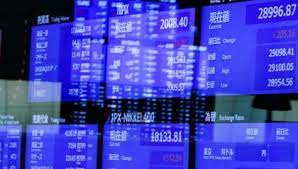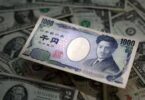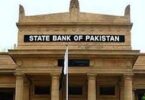LONDON (AFP): Stock markets retreated and the dollar traded mixed Wednesday before the release of key US inflation data.
Following last week’s Fed hike to interest rates and a forecast-beating jobs report for the world’s biggest economy, focus is lasered on the US consumer price index reading later in the day. The outcome should play a key decision-making role in the US central bank’s June policy meeting, according to market watchers.
“Investors are eager to see proof that inflation is easing as that is another reason for the Federal Reserve to stop raising interest rates,” said Russ Mould, investment director at AJ Bell.
“The sharp rise in the cost of borrowing has had a brutal impact on consumers and businesses and any relief on this front would be welcomed by the market — even if it is just a rates pause rather than reduction in the near-term.”
The Fed hinted at a possible pause in its long-running tightening cycle but observers warned that any sign inflation is creeping up would put pressure on officials to turn the screws further. And while the US economy shows resilience, several indicators suggest it is easing, feeding concerns that it could be heading for a recession.
Adding to the headache for the Fed is the need to avoid causing more ructions in the finance sector after the recent upheaval that has seen three US regional lenders go under, one taken over by JPMorgan, and UBS buying Credit Suisse in the space of two months.
The lenders’ troubles have been partly blamed on the rapid rate hikes since last year, meaning monetary policymakers have been forced to rethink their approach to bringing down inflation.
Dealers are also keeping tabs on developments in the talks to raise the US debt ceiling, with congressional leaders unable to reach an agreement on how to lift borrowing before a deadline to avoid a catastrophic default.
Crunch talks between President Joe Biden and key lawmakers from both parties Tuesday yielded no breakthrough, though they did decide to meet again Friday to hammer out a deal.
Biden said he made one thing clear during the talks: “Default is not an option.”
However, the way forward will be tough because the Republicans, who control the House of Representatives, said they will only raise the limit from its current $31.4 trillion maximum if spending curbs are enacted.
The heads of some of Wall Street’s biggest names urged lawmakers to get a deal done quickly.
“The short-term impacts of a protracted negotiation are costly; the long-term implications of a default are unthinkable,” warned current and former leaders of the Treasury Borrowing Advisory Committee, which includes top executives of Goldman Sachs and JPMorgan among others.
“The magnitude of adverse consequences from a prolonged negotiation, or a default, is unquantifiable.” Still, Jason Wong, at the Bank of New Zealand, said traders were biding their time for now.
“I don’t think there is likely to be any market reaction until we get closer to the X-date,” he said. “That is still a moving target, likely into June and quite possibly later into July.”
“Meanwhile, headlines around negotiations are more noise than signal and mostly market-neutral.”







